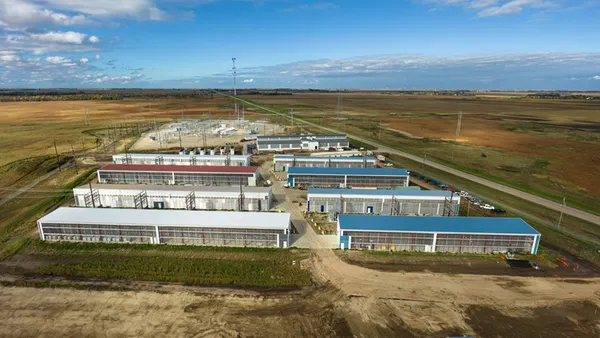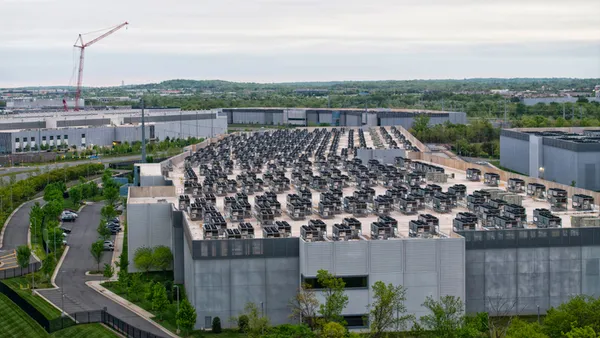Dive Brief:
- Data center operators are facing continued challenges with hiring and retaining employees, record-low vacancy rates and imbalances in power capacity, according to JLL’s H1 2024 Data Center report.
- The U.S. colocation data center market has doubled in size in just four years, and the vacancy rate hit a new record of low 3%, JLL says in its report released August 24. The occupancy rate has increased at a 30% compound annual growth rate since 2020, with preleasing rates at 84% and asking rents increasing between 13% and 37% year over year, depending on lease size, JLL says.
- Alongside the high level of colocation demand — currently unmatched by any other property types — rents in the segment have increased consistently since 2020 across all size ranges and all markets to new record highs, accelerating noticeably in the last year as vacancy approaches 0%, the report says.
Dive Insight:
Amid a need to bring computational power closer to data generation and consumption, edge data centers are becoming increasingly crucial, as they provide numerous benefits in the form of reduced latency and data transfer costs, as well as enhanced data security and uninterrupted business operations, according to a separate JLL report released in July.
Colocation facilities are built with a unified construction standard to house multiple tenants, making it difficult to differentiate artificial intelligence from traditional workloads within a facility, especially while observing server cabinets from a distance, JLL says in its H1 2024 data center report. Since new processors require more power and emit more heat, server racks are likely to have specialized cooling methods such as direct-to-chip liquid cooling and rear door heat exchangers, JLL says.
Due to data centers’ increased power needs, there are growing concerns that the U.S. electric grid is running out of power, with data center demand growing at a 21% CAGR in recent years, the report notes, pointing to regional imbalances in power capacity. While some areas are already experiencing power exhaustion, other regions continue to have the capacity needed for data center development, JLL says. Although the U.S. power grid is not in danger of running out of capacity in the near term, “colocation capacity construction leveled off in the first half of 2024 at 5.3 GW, a potential signal that the U.S. power grid cannot support development at a faster pace,” JLL says in the report.
During peak summer demand in 2024, the U.S. power grid is projected to have operated at 94% of permitted capacity, with power demand potentially set to exceed supply by 2033 when factoring in data center growth projections, planned power retirements and anticipated power additions.
In addition to power concerns, the challenge of finding the right talent has become more acute due to rapid data center expansions, with developments expanding into rural areas with limited labor pools and complex operations requiring highly technical roles, JLL says. As a result, only 15% of applicants meet the minimum job qualifications, while positions can often take 60 days or more to fill, JLL says.
Due to the hiring challenges, JLL estimates that 10% of data center roles at existing facilities are unfilled — more than twice the national average across all industries. Citing an Uptime Institute survey of data center owners and operators, the report says that 48% of data center operators have experienced a staffing shortage in junior and mid-level operations staff in the past year, while 41% and 36% experience shortages in electrical services and operations management staff, respectively.
Furthermore, attrition rates within the data center industry remain a “severe challenge given the percent of roles that are currently unfilled and the projected growth of the industry over the next few years,” the report says. Based on exit interviews, the three primary reasons for resignations include pay, burnout and career development, with nearly 50% of data center employees saying that pay was the primary reason for parting ways with their employer, JLL says.














